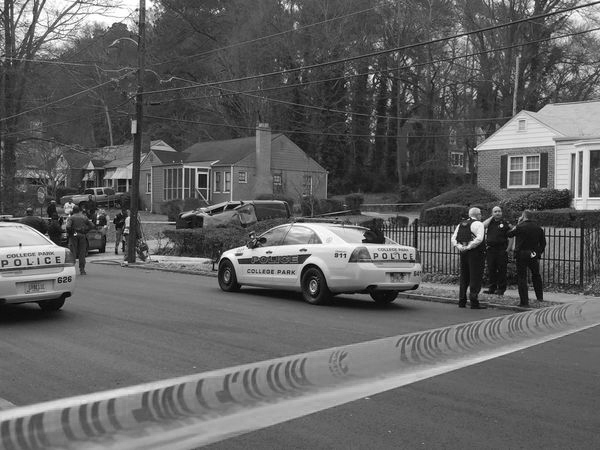Metro Atlanta police pursuits are the latest in a wave of carnage
But many police forces are not nearly as interested in pursuit training, even though high-speed chases are much more likely than gun battles.
“We don’t kill innocent people in shootouts; we don’t kill people walking down the street minding their own business,” he said.
From 1982-2004 there were 7,430 fatalities due to police chases, according to the National Highway Traffic Safety Administration data. More than a quarter — 1,994 — were innocent bystanders. There were 5,335 in the car being chased and 81 police officers.
Cops didn’t join up police forces to let wrongdoers get away. It’s part of their DNA.
Hard-headed, maverick cops and head-long chases are part of American lore. There’s Popeye Doyle desperately chasing an elevated train in New York City in the “French Connection” and Frank Bullitt terrorizing the streets — and hills — of San Fran in his Ford Mustang. Of course, both fictional cops got their bad guys.
Real life’s a lot more equivocal.
Dan Murphy, a pizzeria owner now of Fayetteville, was a New York police sergeant and the veteran of many chases. Each one was terrifying and the sum of a rash of life-and-death decisions, quickly made. Often, they tailed off rather than making the streets of Manhattan more dangerous.
“Is it worth shutting down chases and letting the guy get away?” he asked. “If the bad guys know you won’t chase, then everyone of them is going to run. It’s a fine line. It’s a tough call.”
Yates said that oft-noted quandary isn’t necessarily so, “We haven’t seen that in this country. That’s not a theory any more.”
An article for the Police Foundation publication by professor Geoffrey Alpert exploring a court case about a police chase: “The Court espouses one of the classic myths about pursuit driving: if the police don’t chase, then everyone will flee. As an example, research by the Orlando, Fla.,, Police Department documented that only 107 suspects fled from more than 40,000 stops between March 2004 and February 2005. This occurred after the department’s highly restrictive pursuit policy was made public.”
In the week before Christmas 2001, an airport worker and karate enthusiast named Kevin Francis Golden Jr., was killed by a man fleeing College Park police, the same force involved in the chase that killed three people last week.
The driver, Brian Jerome Frazier, is doing every bit of his 15-year sentence, not to be released until late this year.
Wendy Golden, the dead young man’s mother, worked with organizations to make changes that would call off many of the kind of chases that killed her son. Now living in Arizona, Ms. Golden was disheartened to hear about the recent deaths.
She said she attended a legislative session at which a lawmaker “suggested to one of the other mothers in attendance to consider her son as ‘collateral damage’ in the fight to uphold the law.
“When I was asked to speak, I immediately told the legislator my son was not ‘collateral damage’ to uphold any law in the state of Georgia and that although I do not expect to tie the hands of law enforcement, something needs to be done to eliminate unnecessary chases. The man who killed my son had two priors for DUI. They knew who he was. It is a game of cat and mouse and we are disposable ‘collateral damage.’”


Leave a Reply